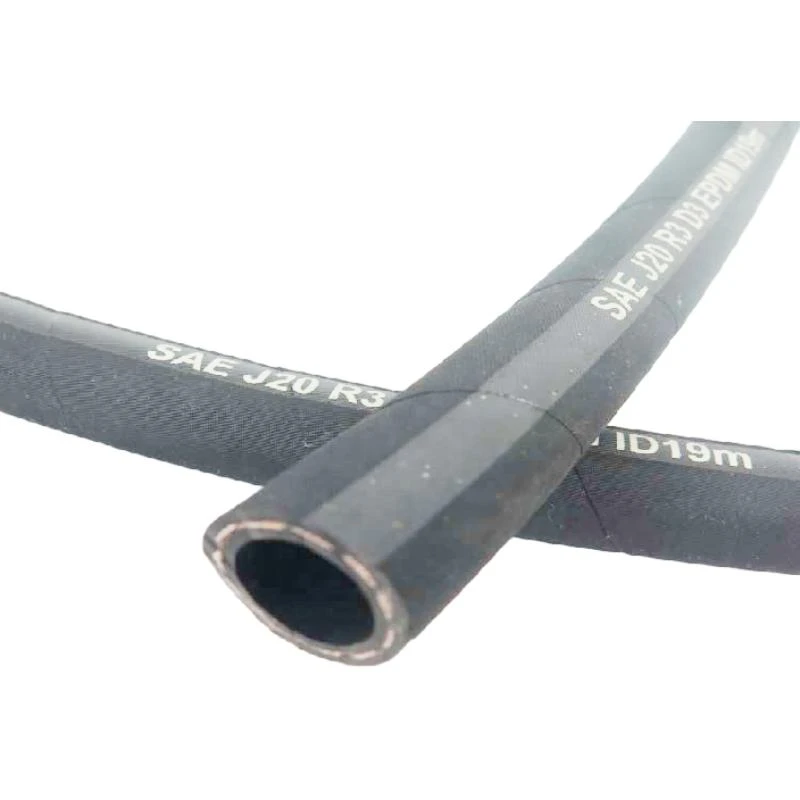e85 compatible fuel hose
Nov . 19, 2024 14:28 Back to list
e85 compatible fuel hose
Understanding E85 Compatible Fuel Hoses What You Need to Know
As environmental concerns rise and the push for cleaner fuels becomes more prominent, many car enthusiasts and everyday drivers are considering E85 as an alternative to traditional gasoline. E85 refers to a fuel blend that contains 85% ethanol and 15% gasoline, and while it boasts numerous advantages, utilizing E85 in your vehicle comes with specific requirements—especially regarding the fuel hose. In this article, we will explore what E85 compatible fuel hoses are, why they are important, and how to choose the right one for your vehicle.
What is an E85 Compatible Fuel Hose?
An E85 compatible fuel hose is a type of fuel line specifically designed to withstand the corrosive effects of ethanol-based fuels like E85. Unlike regular gasoline, which has a lower ethanol content, E85 can cause degradation in certain materials typically used in fuel hoses, including rubber and some plastics. An E85 compatible hose is usually made from materials such as fluoropolymer or other specialized compounds that resist degradation and ensure durability over time.
Why Choose E85?
E85 presents several benefits that entice drivers to switch from conventional fuels. First and foremost, it produces lower emissions, contributing to a cleaner environment. Moreover, E85 has a higher octane rating compared to regular gasoline, which can enhance engine performance in vehicles designed to take advantage of this fuel. Ethanol is also a renewable resource, often derived from agricultural products, which supports the idea of moving away from fossil fuels.
The Importance of Compatibility
Using an E85 compatible fuel hose is crucial for several reasons. Standard fuel hoses that are not designed for ethanol blends can swell, become brittle, or crack over time. This not only leads to leaks but can also result in engine problems, reduced fuel efficiency, and costly repairs. An incompatible fuel hose ultimately jeopardizes both safety and performance, making it critical to use the right materials when converting to E85 fuel.
How to Choose the Right E85 Compatible Fuel Hose
When selecting an E85 compatible fuel hose, consider the following factors
e85 compatible fuel hose

1. Material As mentioned earlier, choose hoses made from materials specifically designed to resist ethanol. Fluoropolymer hoses are among the best options.
2. Size and Diameter Ensure that the diameter of the hose fits your vehicle’s fuel system requirements. Measure the current hose or check your vehicle’s specifications.
3. Pressure Rating Fuel hoses must be able to withstand the pressure generated by the fuel system in your engine. Make sure to choose a hose that meets or exceeds these pressure ratings.
4. Temperature Tolerance Ethanol blends can operate at different temperatures compared to conventional fuels. It’s essential to have hoses that can manage the heat generated in your fuel system.
5. Brand Reputation Opt for hoses from reputable manufacturers that specialize in automotive applications. Look for reviews and testimonials to gauge the reliability of the product.
6. Chemical Resistance Make sure the hose you choose has excellent resistance to both gasoline and alcohol-based fuels. Check product specifications for detailed chemical compatibility.
Installation Considerations
While replacing a fuel hose may seem straightforward, it's best to consult with a professional mechanic if you are unsure about the process. Proper installation is crucial to avoid any leaks or failures in the fuel system. Be sure to inspect the connection points and use appropriate clamps that can handle the pressure and temperature requirements of E85 fuel.
Conclusion
Switching to E85 can be an excellent choice for environmentally conscious drivers looking for improved performance. However, ensuring that your vehicle is equipped with an E85 compatible fuel hose is essential for safe and efficient operation. By understanding the unique requirements of E85 and selecting the right materials, you can optimize your vehicle for this alternative fuel and contribute to a more sustainable future. Remember to do thorough research and, when in doubt, seek professional advice for the best results.
